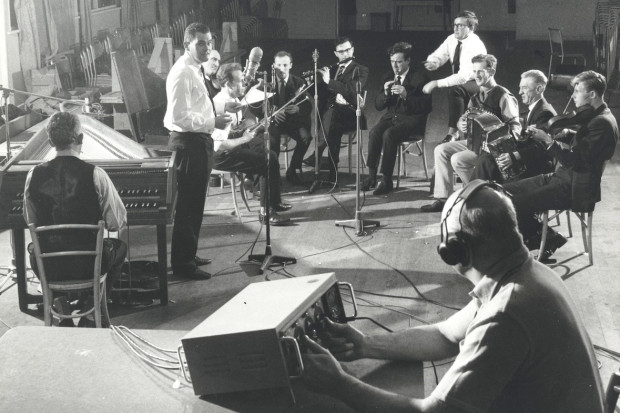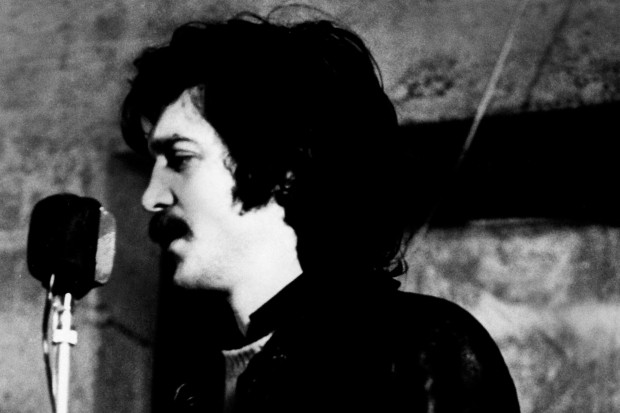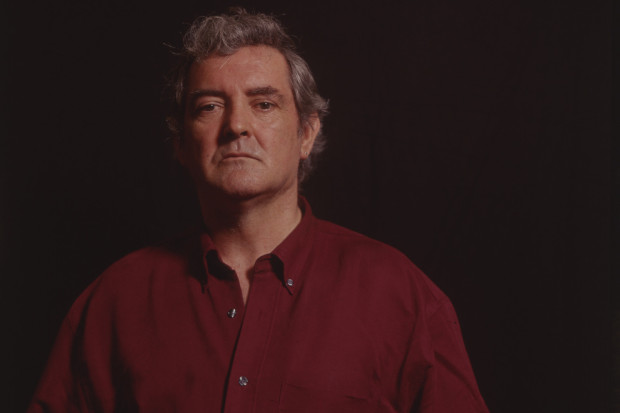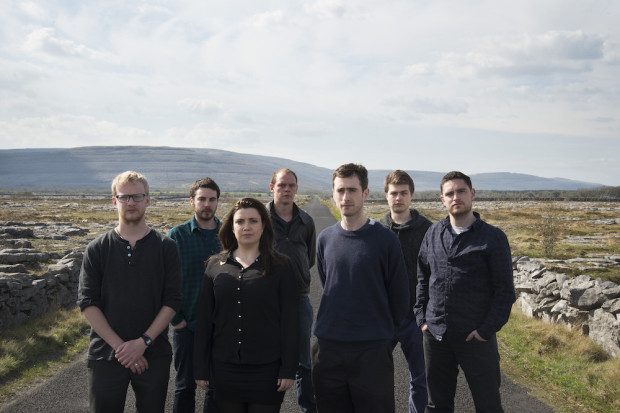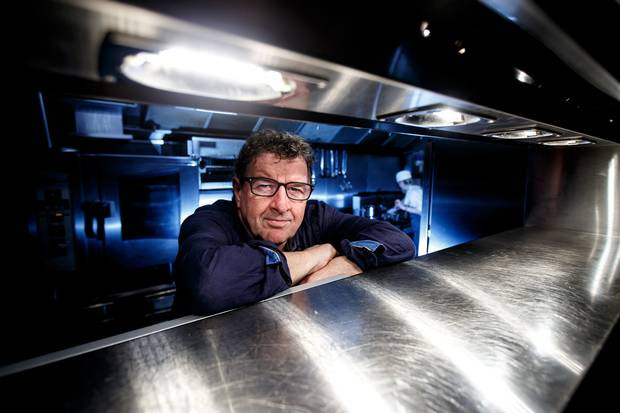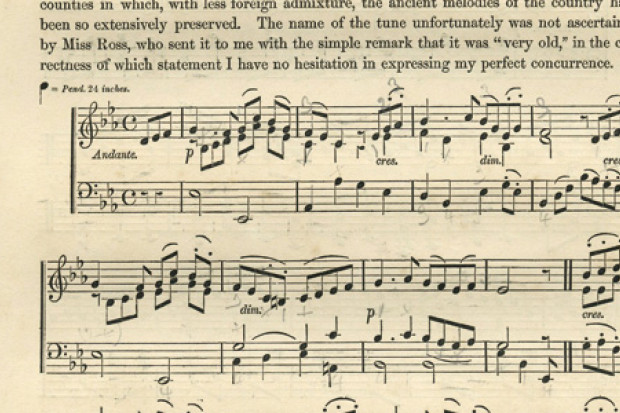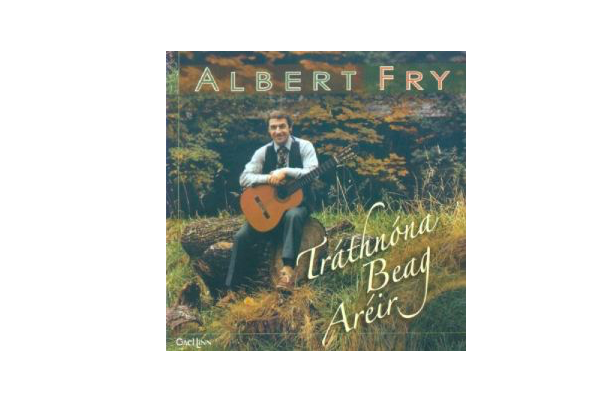
CD Review: Albert Fry
Growing up in north Belfast in the 1950s, Albert Fry got to know a family from North Queen Street, the Greens or Clann ’ic Grianna. The father was Donal Mac Grianna, brother of the Donegal writers Seosamh Mac Grianna and Máire and a translator and teacher of Irish himself.
With Donal’s son, Máirtín, Albert would take trips to Rann na Feirste in the Donegal Gaeltacht where they were treated like native sons, playing football with the local team and going on house visits. At his time, Rann na Feirste was still a treasure trove of Gaelic culture, with seanchaithe and singers – and the areas’s remoteness – ensuring that the tradition remained vibrant.
It was in this environment that Albert picked up the songs on this collection of songs recorded by Gael Linn between 1968 and 1979 during many’s an oíche airneáil, and released on CD for the first time this year. Despite being very old-fashioned – one man and a guitar for the most part – it is an important album containing twenty-two songs from the Ulster tradition.
There are children’s songs, patriotic songs, love songs, drinking songs, throwaway songs and important songs, but all are songs for singing. Armed with a new-fangled tape recorder, Albert took the songs back to Belfast and has been teaching them at Cumann Chluain Ard for the past four decades, strengthening that bond with the Donegal Gaeltacht and giving different generations ‘the soundtrack of their lives’.
I often wonder how many people in Ireland know the words of great songs such as ‘Seachrán Chairn tSiadhail’ or ‘Máire Ní Mhaoileoin’ or ‘Mheall sí lena glórthaí mé’. The songs represent the continuity of the tradition going from Peadar Ó Doirnín’s ‘Úrchnoc Chéin Mhic Cáinte’ written in the eighteenth century to folk songs written by Clann ’ic Grianna in the twentieth.
And if you are thinking that the songs might have lost their resonance, you have only to listen to the heartbreaking interview Nuala O’Faolain gave to Marian Finucane before cancer took her away. O’Faolain requested that the album’s title track, ‘Tráthnóna Beag Aréir’, which is also known as ‘Thíos i Lár an Ghleanna’, be played. It contains the line, ‘Ós a Rí na glóire gile, Tabhair ar ais an oíche aréir’ which O’Faolain saw as the abiding sentiment of people facing death.
O’Faolain said that one of ‘the little bits’ she had picked up here and there about Ireland, largely at the Merriman Summer School, was ‘a song I heard a few years ago “Thíos i Lár an Ghleanna” – a kind of modern song sung by Albert Fry and other Donegal singers. And the last two lines are two things, asking God up there in the heavens, even though you don’t believe in him, to send you back even though you know it can’t happen. Those two things sum up where I am now,’ she said through the tears.
The minimalism of the arrangements certainly adds to the power of some of the songs, but Albert is later joined by Dónal Lunny on two tracks and by Máiréad Ní Mhaonaigh and the late Frankie Kennedy on two others.
Tráthnóna Beag Aréir is an indispensable album for anyone who wants to delve into songs from the Ulster tradition. It’s high time they were back i mbéal an phobail.
Published on 1 November 2008
Robert MacMillan is Irish Language Editor with The Irish News in Belfast.










